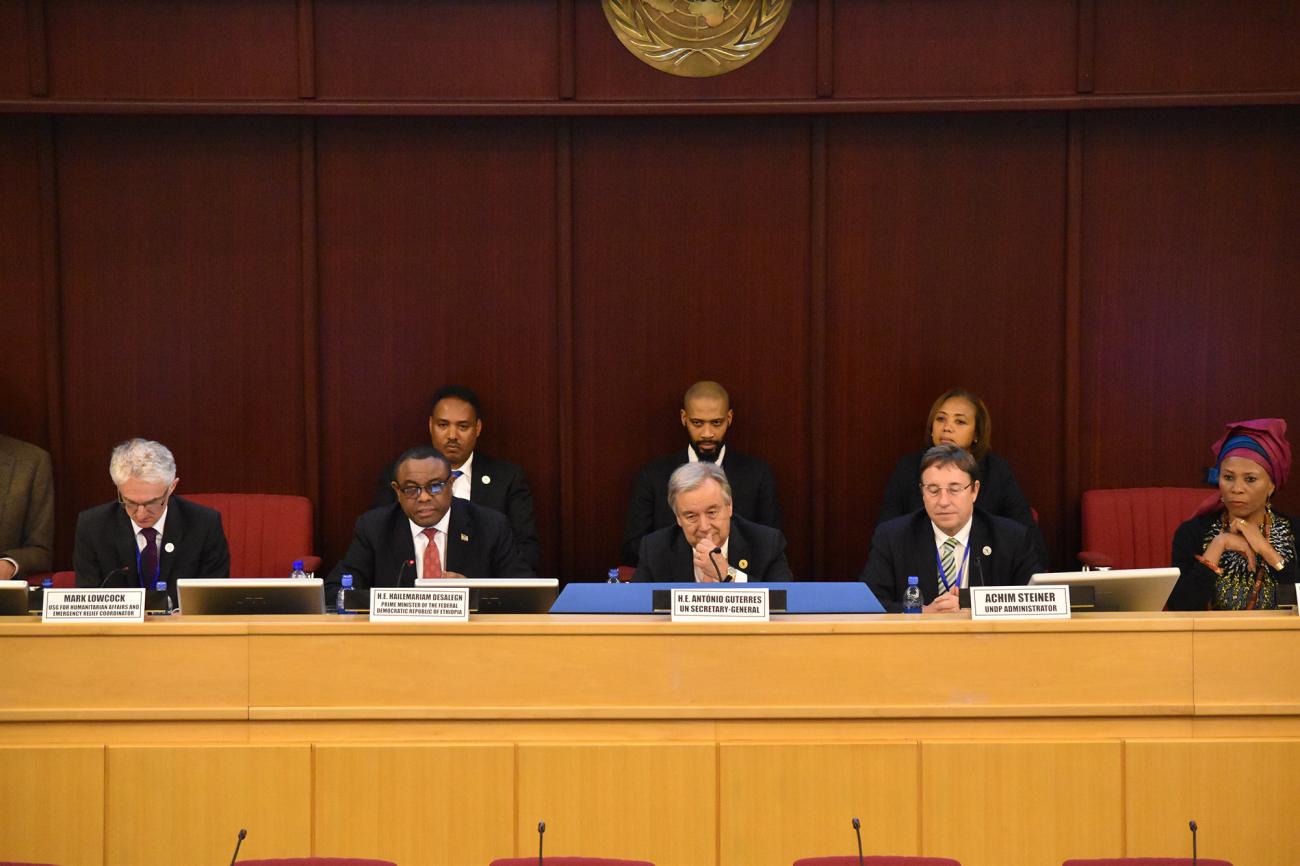The Administrator of the United Nations Development Programme (UNDP) Achim Steiner and the United Nations Under-Secretary-General for Humanitarian Affairs and Emergency Relief Coordinator, Mark Lowcock concluded a three-day joint mission to Ethiopia by urging all stakeholders to increase cooperation to withstand humanitarian and climate-related crises.
The goal of the visit was to assess impact of recent droughts and highlight Ethiopia’s efforts to strengthen its national systems and the relevance of the UN’s new approach to crises or ‘New Way of Working’ (NWOW).
The two senior UN officials began their visit on Saturday 27 January with a field visit to Gode, in the Somali region, which is home to more than 400,000 conflict-affected internally displaced persons and where current relief activities are targeting more than 3.3 million beneficiaries.
Another highlight of the trip was a high–level event held in Addis Ababa on Monday 29 January, on the margins of the 30th African Union Summit under the theme “New Way of Working — From Vision to Action. National, Regional and Global Experience”. Co-hosted by United Nations Secretary-General Antonio Guterres and Ethiopian Prime Minister Hailemariam Desalegn, the event was meant to galvanize stakeholders’ support for ongoing work on the NWOW in Africa in general and in Ethiopia in particular.
Underscoring the UN’s commitment to this new paradigm, SG Guterres said: “We have a moral obligation to do better and we have the tools and knowledge to deliver on that obligation. We must break down the silos that have existed for too long between humanitarian and development actors.”
“The new of working is very relevant to Ethiopia, as it will reinforce the systems and institutions the country has been building and strengthening over the past several years, with a focus to build resilience through development work while addressing the humanitarian agenda in an integrated and sustainable way,” said the Prime Minister Desalegn as he pledged his Government support.
Outlined at the 2016 World Humanitarian Summit in Istanbul, the NWOW approach which calls for bridging the divide between humanitarian and development practitioners is also designed for contexts where short-term humanitarian response and medium to long-term development programming are required simultaneously.
“While the humanitarian system is very effective in saving millions of lives every year, we could generate greater value for money, better results and solve problems faster if we join up better with development actors,” said Mr. Mark Lowcock.
Ethiopia has been leading the way in operationalizing the NWoW to build the resilience of its people and reduce the number of people in need of humanitarian assistance. The government is scheduled to call a high-level partners meeting to develop concrete actions around NWOW commitments.
In an overall assessment of his visit UNDP Administrator Achim Steiner indicated that he is “particularly excited by the latest policy directions we are witnessing in Ethiopia. Many of the systems and policies that have been put in place over the years allow us to look at a situation where the emergency support system is functioning. There is no catastrophe and the economy of Ethiopia is able to continue to develop.”
Mr Steiner also added: “As Ethiopia moves into a middle-income country it can break many new boundaries and barriers. We want to work together to ensure that all citizens of Ethiopia are able to be part of that future vision of Ethiopia and also the Sustainable Development Goals.”
As they concluded their visit to Ethiopia, Mr. Achim Steiner and Mr. Mark Lowcock headed to Mogadishu, Somalia for the final leg of their joint mission in the region.




